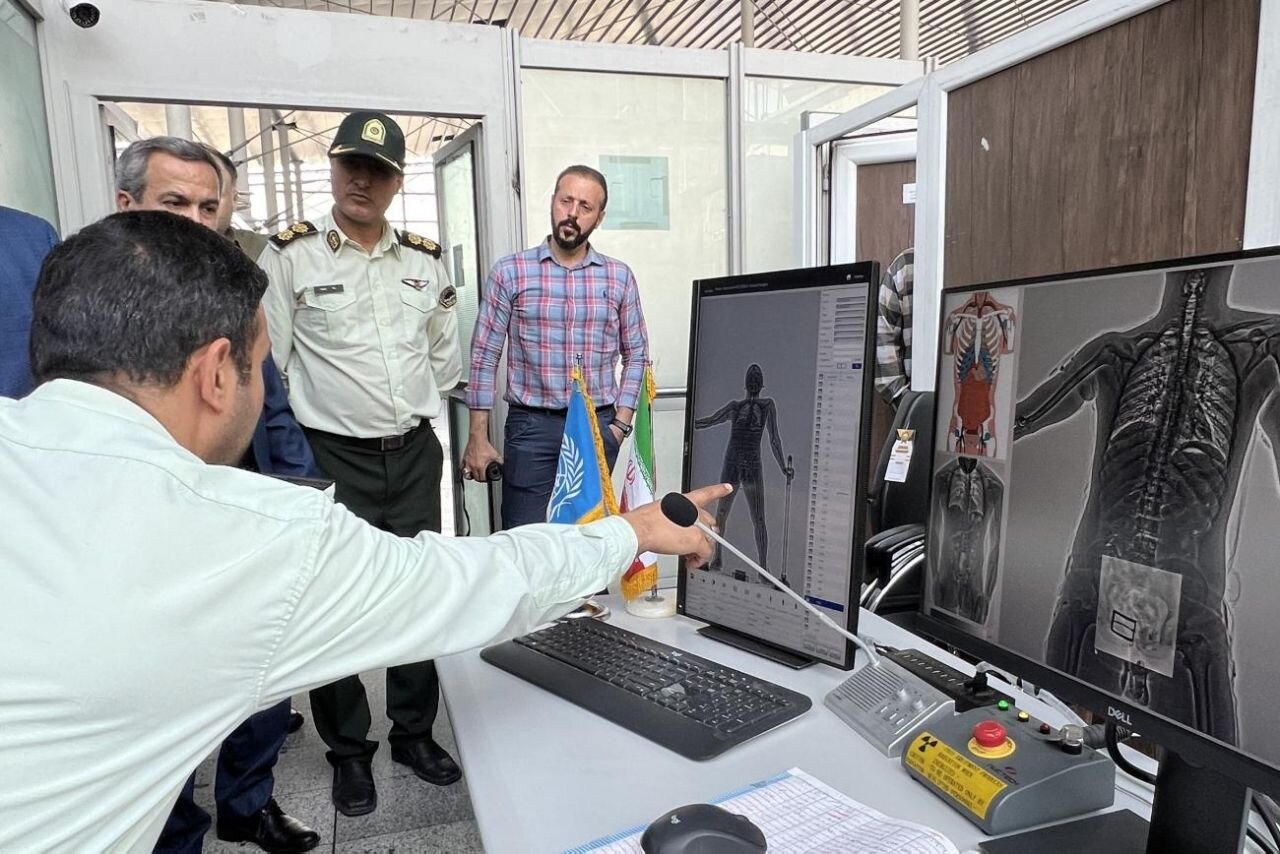UNODC boosts Iran’s capacity to prevent drug trafficking

TEHRAN – A total of three X-ray Body Scanners crucial for efficiently identifying narcotic drugs concealed in the body or swallowed have been installed in three international airports of the country, namely Imam Khomeini International Airport, Gorgan International Airport, and Ahvaz International Airport.
The United Nations Office on Drugs and Crime (UNODC) in Iran has procured and installed these devices with the aim of preventing the illegal trafficking of drugs through the air border of Iran, the UN website announced in a press release on August 7.
On August 4, the United Nations Office on Drugs and Crime (UNODC) in the Islamic Republic of Iran in an official ceremony handed over one X-ray Body Scanner.
The official event was organized at the Imam Khomeini International Airport, with the presence of representatives from UNODC Iran, the Drug Control Headquarters (DCHQ), and the Anti-Narcotics Police of the Islamic Republic of Iran.
The Office also provided pertinent specialized training for end users of each device, under the guidance and supervision of professional technical engineers.
Due to its geographic proximity to Afghanistan, the Islamic Republic of Iran serves as both a destination and a transit route for illicit drug trafficking, especially opioids and recently methamphetamine produced in Afghanistan. In response to this challenge, the UNODC Iran under its Sub-Program 1 “Border Management and Illicit Trafficking” continues to support, both technically and financially, the national drug control efforts, through the implementation of various activities.
Mahdi Javaheri, Director General of the International Relations Office of DCHQ, in his statements, expressed his gratitude to the UNODC for continuous support extended to the Iranian controlling entities and hoped the support will continue and increase in the future, considering the high demand for provision of controlling equipment, especially X-ray devices.
Procurement of controlling equipment is among the main activities of UNODC Iran under its Sub-program 1 “Border Management and Illicit Trafficking”.
This initiative has been incorporated into the UNODC Iran Country Partnership Program (CPP) based on needs assessments and proposals from national counterparts.
This outstanding achievement is an indicator of successful cooperation between UNODC Iran and its national counterparts, and also clearly highlights the positive and significant role of UNODC in the process of drug control and border management.
On July 24, UNODC in Iran handed over 4 drug identification devices, procured through generous support by the Japanese Government, in an official ceremony at the premises of the DCHQ in Tehran.
These devices which will be used for controlling a wide range of drugs trafficked, especially at the eastern borders of Iran with Afghanistan, have been procured under sub-program 1 of the UNODC Country Partnership Program (CPP) 2023-2026.
The government of Japan has been supporting UNODC Iran's activities on Drug Supply Reduction for many years.
The Ambassador of Japan in Iran, Tamaki Tsukada, has expressed his willingness to support trilateral cooperation between the Islamic Republic of Iran, UNODC, and the government of Japan.
He also commented on the successful achievements of the Islamic Republic of Iran and stated that the level of activities and seizures by Iran, at the frontline of the fight against drugs, is very impressive.
ALSO, UNODC handed over 10 fully trained drug-detecting dogs, specially modified canine trailers, and ancillary supplies, procured under a generous Japanese fund.
UNODC provides technical assistance to Iran in its efforts to combat illicit drug trafficking and the smuggling of precursor chemicals.
As part of these efforts, trained drug-detecting dogs will be deployed at border crossings and checkpoints in Afghanistan to conduct searches on trucks, containers, and cargo, passing through legal entry points.
UNODC Iran, also provided training sessions for the Iranian ANP canine trainers, trained by international senior instructors, to use their knowledge during their daily work at border crossings to search vehicles, containers, and cargo.
MT/MG
